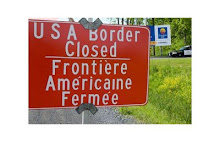During the Anthony Weiner fiasco, Kane reminded me of the disgraced congressman’s duplicitous role in shepherding the Prevent All Cigarette Trafficking Act (PACT Act) of 2009, of which he was the House sponsor, through Congress. In the middle of this ridiculous Twitter situation with Weiner, I spoke with Kane on his show about the scandalous nature of an act sold to the public as an anti-terrorism, tax-evasion punishment with positive public health consequences as Rep. Weiner argued on the House floor. In reality, the act itself was a protectionist economic tool crafted by, and for the benefit of, the American tobacco giants and convenience-store retailers seeking a way to curb the growth of native brand cigarettes. The passage of the PACT Act is a textbook example of money and influence in Washington where holier-than-thou legislators preach from atop an artificial moral high ground from a pulpit made of campaign cash.
The greased wheels of democracy behind this bill carry a clown car of strange bedfellows down roads that all lead back to billionaire John Catsimatidis, the ringmaster of this bizarre circus of influence. Catsimatidis is a high-profile figure in New York politics whose fortune is derived from the oil-refinery, grocery and convenience-store industries. Most recently it was the high society nuptials between his daughter, Andrea and Christopher Cox—grandson of Richard Nixon and son of New York GOP leader Ed Cox—that put the Catsimatidis name in the public eye. This is a merger of the highest social order in New York, renewing the notion that Catsimatidis will take a shot at becoming the next billionaire mayor of New York City, a hope that had been dashed when current Mayor Michael Bloomberg decided to run for a third term. Add to the mix that presumptive candidate and power-grubbing sycophant Weiner is out of the picture, and the Catsimatidis for Mayor campaign will undoubtedly be in full swing.
Catsimatidis stands in stark physical contrast to the relatively soft-spoken and diminutive Bloomberg. A big man with bulbous features, he has a caricaturesque appearance. Apart from these visual differences the two men have much in common. They are self-made billionaires whose party affiliations are fluid and for whom the job of Gotham’s mayor is the brass ring. Less notably, but important where the tobacco industry is concerned, they are perfectly aligned in their unmitigated offensive against the native cigarette trade, and they were Anthony Weiner’s two top individual donors.
Bloomberg’s assault on the Indian cigarette trade has been well-publicized, but it’s Catsimatidis who truly keeps the fire stoked. For example, half of the sponsors of the PACT Act have been recipients of Catsimatidis’ largesse over the past several years. Since the 1990s he has spread around nearly a million dollars in campaign contributions under his name or his direct family members. He even dumped campaign cash into the coffers of Rep. Peter King (R-Seaford), who, during the cycles he received money, produced a congressional committee report titled “Tobacco and Terror,” which attempted to establish a link between the native cigarette trade and Hezbollah. It was a marginal and laughable report until Rep. Weiner matter-of-factly referred to the report (produced by his political nemesis) as gospel while arguing for the PACT Act on the House floor. From that point, the fate of native cigarette traders was effectively sealed. The New York and Washington, D.C. tobacco cabal, bought and paid for by Catsimatidis, included provisions in the act that delivered a direct blow to the Seneca Nation in western New York, arguably the most successful tobacco entrepreneurs in the United States, and direct competitors to the chain of convenience stores and gas stations owned by none other than John Catsimatidis.
Ironically, but purposefully, the only winners from the PACT Act were the tobacco manufacturers and convenience store owners who essentially crafted the legislation and financed its passage. Big Tobacco reaffirmed its competitive economic advantage by squeezing off supply routes for native brands and Indian retailers, which in turn benefited convenience stores with multiple locations. The act had little to do with trafficking, public health or terrorism, and everything to do with asserting monopolistic influence over a growing native trade that was gaining market share.
Watching Weiner argue the bill crafted by his donors told me everything I needed to know about this guy long before he revealed his true sleazy nature. “An act that goes after cigarettes, tax evaders and terrorism? Slam dunk… Who gets hurt? Indians? Where do I sign?” This was probably the extent of the conversation that transpired between PACT Act sponsors like Anthony Weiner and sugar daddy Catsimatidis. When it came down to it, Weiner could be bought. That’s the name of the game, I suppose, and whoever takes his spot will likely be no different. After all, a Weiner by any other name is still a dick. (You didn’t think I would get through the whole piece without a penis pun, did you?)
Jed Morey is the publisher of the Long Island Press, an alternative weekly newspaper with a circulation of 85,000, and www.longislandpress.com, which welcomes more than 750,000 unique visitors every month. He serves on the boards of the Long Island chapter of the New York League of Conservation Voters and the Holocaust Memorial and Tolerance Center in Nassau County, as well as the President's Council of Big Brothers and Big Sisters of Long Island. Morey is also a proud founding member of the Keep It On Long Island (KIOLI) movement, an online community - www.kioli.org - dedicated to preserving the Long Island economy while providing environmental stewardship in the region. The Kioli founding members set aside 5% of membership investments to purchase shares of a local, organic Community Supported Agriculture (CSA) project, which then donates the equivalent shares to Island Harvest, a Long Island-based hunger relief organization. In addition to the contributions on this blog, Morey authors the award winning column for the Long Island Press entitled "Off The Reservation" and is a staunch advocate for Indian rights. Morey lives in Glen Cove with his wife, Eden White, and their two daughters.













![-[]-[]-/\-[]-[]-](https://blogger.googleusercontent.com/img/b/R29vZ2xl/AVvXsEjLoXmKO8PJVQ5pZ2q7GX7nFKw8H2tb28dxt-o10FUBNtOGszWhWoLB7tgjtMgtISpuSxNW3fcDxfuSS2DqojsdjNJ1lVggyUS374PnzsDbOhk4ukvtTunFQcyfkckZeBzcLbri4LDYN_E/s214/29-03-A-voice-from-the-Akw-.jpg)





No comments:
Post a Comment